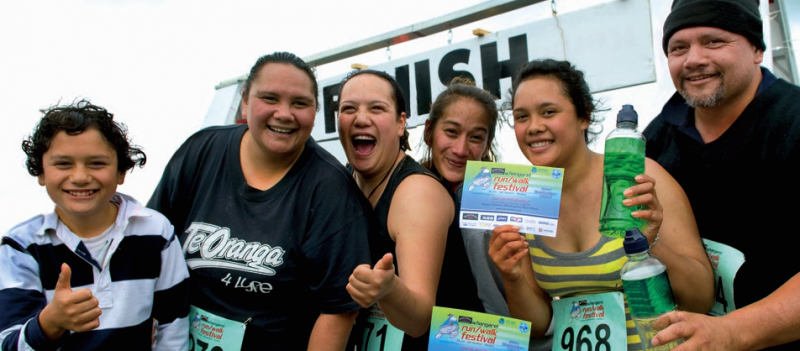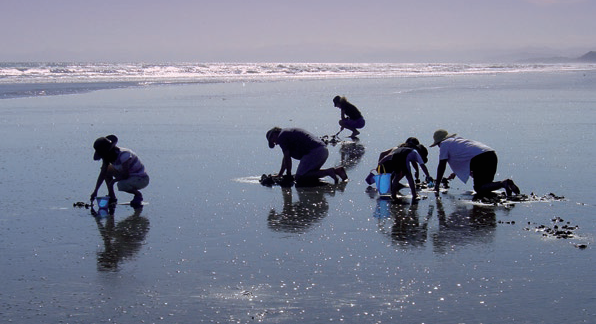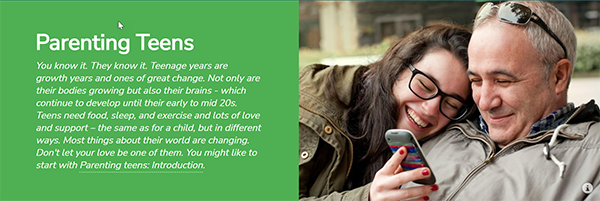Parenting Teens - Spending Quality Time Together
Parenting Teens - Spending Quality Time Together
To be a more effective parent and enjoy a closer whānau (family) relationship, you need to spend quality whānau time together.
Key points about spending quality time with your teenager
- to be a more effective parent and enjoy a closer whānau relationship, you need to spend quality whānau time together
- meal times provide a great chance to connect as a whānau
- research shows that teens do better when their families eat together at least 5 times a week
- find time to spend together on a regular basis
- make spending time with your teen one of your biggest priorities

How many times a week should my family eat together?
To be a more effective parent and enjoy a closer whānau relationship, you need to spend quality whānau time together.
Research shows that teens do better when their families eat together at least 5 times a week. It doesn't have to be only dinners – it could include shared breakfast or lunch on the weekends.
The key is to do it together.
Teens who share regular meals with their whānau are:
- more likely to do better at school
- less likely to smoke or abuse alcohol or other drugs
- less likely to become obese or overweight
- less likely to have suicidal thoughts or behaviours
- feel better about themselves
- feel more connected to their parents and whānau
Meal times
Meal times provide a great chance to connect as a whānau. It's your chance to talk with your kids – to discuss their day – their highs and lows, their plans and goals.
Make shared family meals the priority. Focus on being together rather than creating an elaborate meal that everyone will enjoy. Let everyone know when you will serve the meal and when they must be home.
If the whānau is not used to eating together regularly, start small. At first, get used to eating together 2 or 3 times a week, before increasing to more regular meals together.
Meal times provide a great chance to connect as a family.
Get everyone involved with the meal
The whole whānau can be involved with:
- helping with the shopping
- picking vegetables from the garden
- finding a recipe
- cooking
- serving the food
- setting or clearing the table
Avoid distractions
Make it a habit to turn off the TV, mobile phones and other devices while you eat. The important thing is to be together without distraction.
Focus on one another's company and shared time
Encourage good table manners, but try not to make them an issue or cause tension. It's more important to appreciate one another's company and your time together.
Don't let the talk get out of hand and allow whānau members to criticise each other. Keep it light and fun.
Use the time you have together to connect.
Talk about your day, ask your kids about school or their friends and their plans for the week or weekend.
Avoid growling at kids or correcting them when they share things during meals.
How can I have a closer relationship with my teen?
"Well, you know when we're teens, we're so busy pushing our parents away that when we want them, it's hard to ask."
Teens want adults to spend time with them
Teens really want adults to help shape their views about the world. They want adults to spend time with them and to tell them about the world and how it works.
It's a fact – teens don't want to end their relationships with their parents as they grow older. They just want them to change as they grow. Spending quality time with their parents is one of teens' biggest priorities – but they can't do it alone.
It's important to spend quality time with your teen
It is really easy as a parent to get caught up in work issues, money issues and everything else that parents and families have to deal with on a daily basis. But it's important to remember to spend quality time with your teen and have meaningful conversations.
Be involved in something that your teen is involved in, even if it is just being a fan at their games. This will give you a common topic to talk about.
Also, families that never spend any time together have a harder time communicating with each other. Get creative about scheduling whānau time.
What are some tips for spending more time with my teen?
Take 15 or 20
Give 15 or 20 minutes a day to your teen. Give them all of your attention – and let them choose what you do. They may want to talk about something that's bothering them. Try having a cuppa, reading a magazine together, or going for a walk. The important thing is that you focus on them.
Show an interest
Talking about what your teens are doing at school is a great first step. Attend their games and performances. Go to the parent-teacher conference. Being there shows them how important they are to you more than your words can.
Be friendly
Make an effort to get to know your teen's friends and their parents. Offer to drive a group of teens to the movies or to town. Make your home a place where they can feel comfortable 'hanging out.' You will get to know the people important to your teen – and be able to know they're in a safe place.
Make a plan
Lots of parents have grand plans for whānau time together – the rituals and traditions they'd like to establish or the things they always dreamed they'd do with their families. The difference between families who dream about it and families who experience it is in the making of a plan. Write it down, block it out on the calendar, and talk it up in the days leading up to it. Being deliberate about whānau time shows our kids the value we place upon it and them.

How can routines help my teen?
Routines offer parents and teens a sense of security in their daily lives. When you establish a routine of communicating with your teen – it can be as simple as saying goodnight at the end of the day – you are strengthening their sense of security.
"My kids usually share with me right at bedtime, either mine or theirs. I think it is because they are starting to relax and want my view on things that are going on so that they can work through it. Sometimes it's really late but they seem to be thinking most at that time. Sometimes I've wanted to use toothpicks to keep my eyes open because I'm so tired … but I always listen to what they have to say."
How can dads be more involved with teens?
Dads in the teenage years are particularly important. Fathers often spend less time with their kids than mothers, so dads need to consciously plan and spend more time with them.
Supporting them in their hobby is a great way for dad to be involved, or finding some common ground where you can have one on one time together.
For many teens, this could include learning to drive or helping with a project around the house. More simply, it might just mean asking them to come with you when you go out, or asking for their opinion on something that you are thinking about.
See more KidsHealth content on parenting teens
This page last reviewed 12 March 2024.
Do you have any feedback for KidsHealth?
If you have any feedback about the KidsHealth website, or have a suggestion for new content, please get in touch with us.
Email us now

